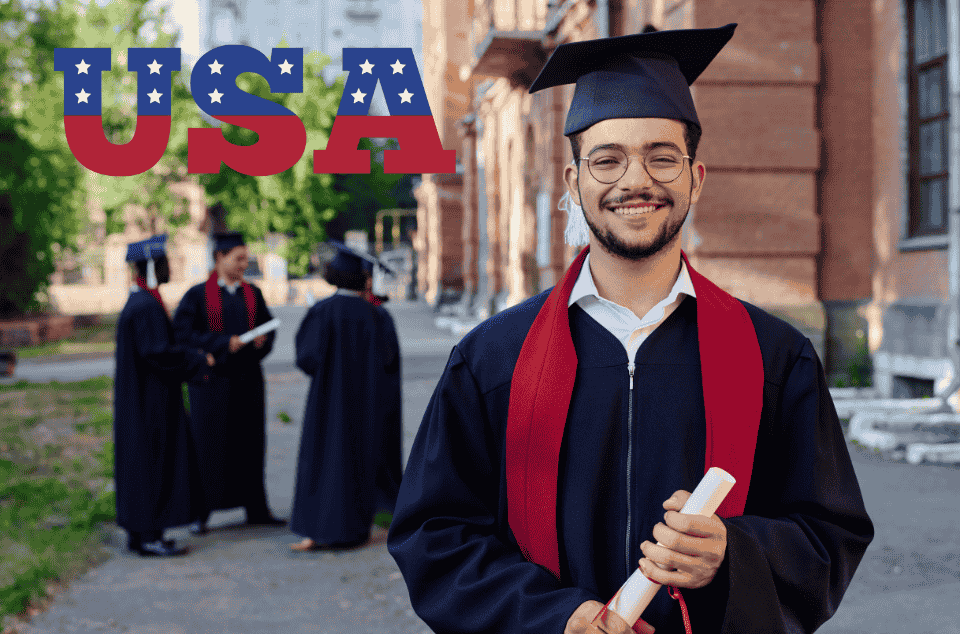By moving away from open-ended stays and toward time constraints, the United States will soon be prepared to change its visa policies for foreign journalists and students. The Department of Homeland Security (DHS) announced a proposal this week that would impose strict caps on the duration of stay for certain foreign nationals, marking one of the most significant changes to US immigration rules in recent years.
The decision affects two major groups: students on academic or exchange visas and journalists working for foreign media organizations. Both groups have traditionally benefited from flexible stay durations. Now, the administration is seeking to redefine the United States visa length with a system of fixed terms that officials say will improve management and accountability.
End of “Duration of Status”
For decades, international students with F and J visas have been admitted under a policy known as “duration of status.” This allowed them to stay in the United States as long as they were enrolled in an academic program, regardless of its duration. A student could pursue a bachelor’s degree, continue into graduate school, and move on to postdoctoral research without facing strict time limits.
The new proposal would eliminate this flexibility. Instead, the US visa span for students would be linked directly to the official length of their program, with a total maximum stay of four years. Students whose studies extend beyond this period, such as doctoral candidates or those in medical training, must apply for extensions through the US Citizenship and Immigration Services (USCIS).
This change introduces new uncertainty into academic planning. Students who once felt secure in completing long-term programs now face the possibility of mid-course immigration hurdles. Universities are warning that the policy could discourage highly qualified international applicants, reducing the US’s role as a top global education hub.

New Restrictions on Journalists
The proposal also introduces new limits for I visa holders, foreign reporters working in the United States. Under the new rule, journalists would be granted an initial stay of 240 days, after which they would need to file for renewal. In some cases, such as reporters from China, the permitted US foreign visa length could be capped at just 90 days.
This marks an important change from the current visa system, which permits foreign reporters to stay for extended periods. Media groups argue that the new limits will disrupt coverage, impede overseas operations, and limit press freedom. They argue that short visa periods make it impossible to do more reports and investigations.
Government’s Justification
Fixed visa lengths, according to supporters of the concept, will increase compliance and reduce the abuse of US visas. They note that the open-ended “duration of status” mainly depends on employers or institutions to notify when a journalist leaves an assignment or a student drops out, making it difficult to monitor.
By introducing defined visa terms, DHS believes it will have greater control and better data on who is in the country and for how long. Supporters of the move view it as part of a broader strategy to update immigration enforcement, close loopholes, and enhance national security.
Opposition and Concerns
Some contend, however, that the planned restrictions are unnecessary and may harm America’s standing overseas. The loss of flexibility may make the US less appealing to colleges than countries with more stable immigration laws that nonetheless welcome students, such as Canada, the United Kingdom, and Australia.
International education contributes billions of dollars annually to the US economy, not just through education but also through research partnerships, innovation, and cultural exchange. A decline in international enrollment could therefore have both economic and academic consequences.
For journalists, the implications are equally profound. Shorter stays may hinder foreign media’s capacity to cover US politics, society, and global policy from direct accounts. Press freedom groups say that the move could be interpreted as an attempt to limit overseas examination of American activities.
Historical Context
This is not the first time US policymakers have attempted to change visa rules for students and journalists. A similar proposal was presented in 2020 by a previous administration, but it was later deleted due to considerable outcry. Universities, advocacy groups, and parliamentarians claimed at the time that fixed visa periods increased bureaucracy and harmed the country’s educational leadership on a global basis.
The revival of the proposal now signals a renewed push for stricter immigration standards. Unlike in 2020, the administration appears more determined to move the rule forward, despite the likelihood of legal and political challenges.
What Happens Next
The proposed regulation will enter a public comment period, during which universities, media organisations, student associations, and advocacy groups will have the opportunity to submit feedback. DHS will then review the comments before issuing a final rule. Legal challenges are also likely, given the high stakes for both education and press freedom.
For now, students and journalists already in the US are being advised to monitor developments closely and prepare for possible changes to their visa status. Immigration attorneys say the proposal, if passed, could lead to longer processing times and heavier administrative burdens for those seeking extensions.
Broader Implications
Fundamentally, this policy means a shift in strategy rather than a change to documentation. It discusses the country’s ideals and position in the globe. The period of a US visa has long been associated with the country’s exposure to talent, expertise, and information. Removing these restrictions may increase regulation, but it may also create the image that the United States is closing its doors to people who help it develop and achieve worldwide influence.

